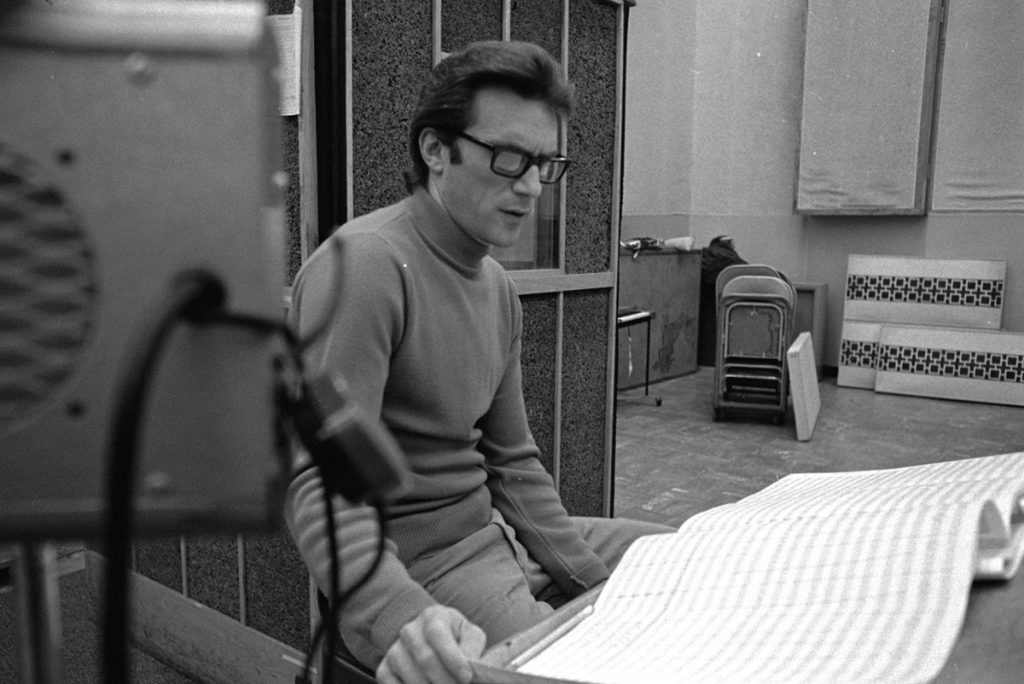
I’m experiencing yet another musical epiphany. Which is nice. This one revolves, like a rather wonky moon, around the planet Axe, aka David Axelrod.
I don’t recall precisely when I first became aware of him. Poss’ during the noughties? There was a quite distinct period when Li numerous bloggers were pumping out digitised versions of old vinyl, and sharing them in the blogosphere. I hoovered up a good of obscure-ish or OOP (out of print) music during that period.
It soon became apparent to me that I already knew Axe, primarily via the Cannonball Adderley recordings of the mid to late sixties through to the mid-seventies, many of which I’d discovered during the same orgy of digital downloads.
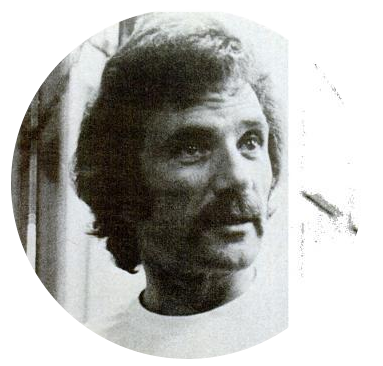
Anyway, back then I downloaded and listened to such Axelrod stuff as Heavy Axe, and The Auction. I also downloaded, but failed to appreciate properly, both Songs Of Innocence and Songs of Experience.
Only now are those two latter albums starting to really seep into my pores, and transform me, along with 1970’s Earth Rot. It’s strange how music can be out there all along, and yet one doesn’t find or connect with it until some seemingly random moment.
Some folk who like Axe’s trio of heavy concept albums – also his first three solo albums (things were strange and different back then!) – can be a bit sniffy about his subsequent recordings. Personally I love pretty much all of what I’ve heard by him thus far.
It has to be said that this opening salvo, a trilogy of pretty unusual recordings, is, in some respects – taken as a whole – both quite singular, and pretty mind blowing. It’s hard, also, to properly appreciate the context in which they were made.
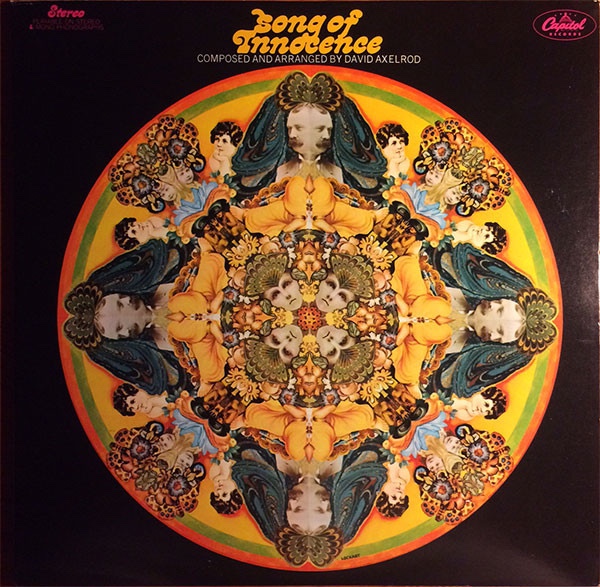
As I type this I’m listening to Songs Of Innocence. As the title suggests, it tips a nod to William Blake, another maverick artist. The team of musicians creating the really quite sublime sounds, which have a kind of thematic coherence and unity I’ll address later, are top notch.
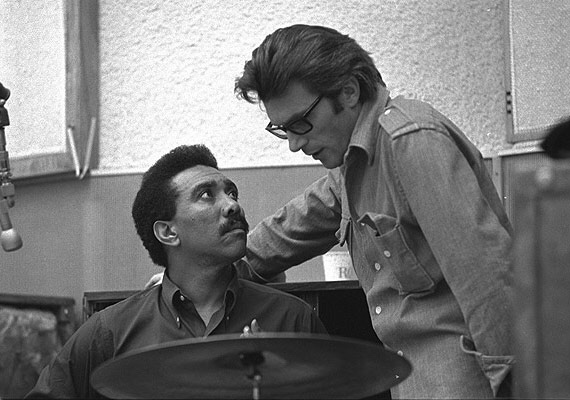
The elastic energised grooves of Earl Palmer (no relation, as far as I know; more’s the pity!) and the lithe electric bass of Carol Kaye, propel a rhythm section rounded out by folk like Don Randi, Al Casey and Howard Roberts. The all instrumental compositions are fleshed out with great cloudy pillows of strings and brass.
Like the original record cover, the music is stunning. Totally of its time, and yet also – to my ears – fresh and ageless, transcending the trappings of the era that gave birth to it. Axelrod was given carte blanche, and had both the budget and the means at his disposal to do something most aspiring producers can only dream of.
And all those resources and all that promise? It all kind of fell flat. Whilst Axe’s work with other artists seemed to work for both parties, his own stuff wound up becoming obscure, overlooked, and almost forgotten.
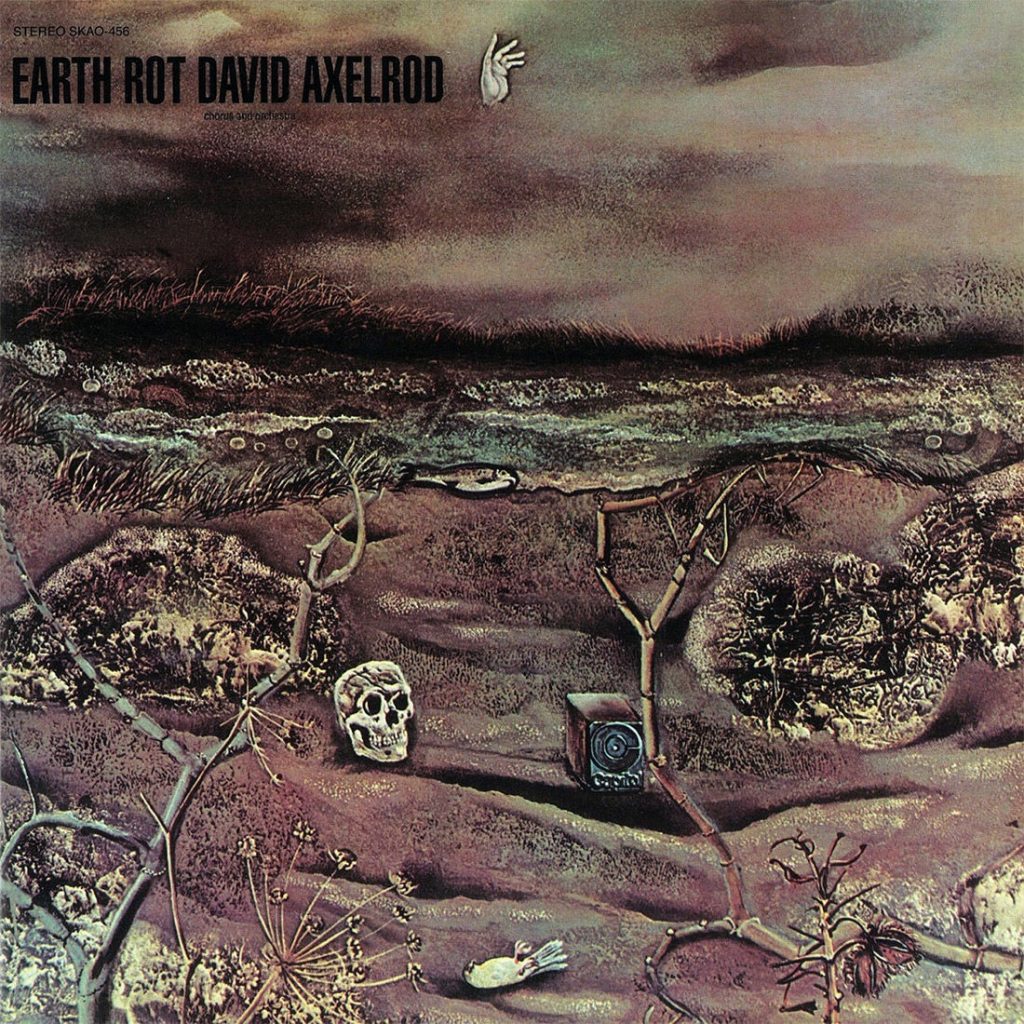
I’m loving the trinity of his first three solo albums so much that I’m going to make a point of going back to all those Adderley albums he had a hand in, and check them all out again. I’ve also ordered the eponymous album that Mo’ Wax released (2001?), which is actually culled from old recordings, of the same or similar vintage to the good ol’ trilogy that I’m totally digging right now.
As do in addition to that I’ve also ordered The Edge, a 2CD collection of his work on Capitol from ‘67-70. This will duplicate much of what I already have. But it also adds a load of stuff he did with other artists in that period. Can’t wait to hear more Axe!
But, as promised/threatened above, more on the music itself. The album – I’m talking primarily here about Songs of Innocence, as that was what I was listening to whilst writing the first draft of this post – is short. And rather than being a collection of different and distinct songs, it’s more a suite of variations on a few themes.
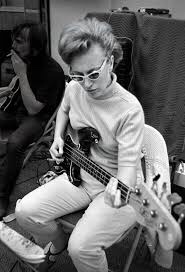
The seven pieces clock in at about 27 minutes. So the whole thing is quite brief. Similarly, Songs of Experience (1969) is just over 30 minutes, and Earth Rot (1970) just under (about 28 minutes). So all three combined make a single playlist of about 90 minutes.
Here’s a link to a piece about Axelrod from The Guardian. This goes into how he has returned to public consciousness via the sampling of his works by hip hop producers. I’ll confess that’s not really my bag, baby. I definitely prefer to go direct to the source!
I also feel the urge to try and find more music exploring similar territory. Amazingly this runs the gamut from stuff like Roy Ayers, to Chris Bowden’s Time Capsule, or from Alice Coltrane to Ligeti.
And, like Woody Allen’s Zelig, I also want to try my own hand at composing some music in this territory. I think I may already have some recordings suited to being taken in this direction. Hmmm!? Yet more reasons to get my old home studio back up and running
But for now, my immediate ‘Jones’ is for listening to Axe’s incredible series of Capitol recordings. I’ve got them all as MP3 files, with the CD or Earth Rot (which arrived whilst Teresa and I were off, to Cardiff, for my sister Abbie’s wedding!) is the first to arrive in physical form.
As The Pointer Sisters famously sang, I’m so excited!
